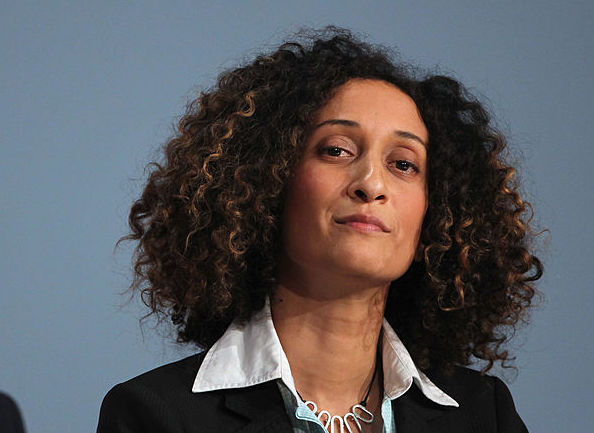Plenty of Conservative party members won’t like this article. I apologise in advance for that: I know grammar schools are popular with the membership and my view won’t be. But bringing them back would be a serious misstep for education policy. They are a distraction from what we should be doing, they serve the wealthy not the poor – and they don’t work.
Throughout my near two decades working on social mobility I would periodically hear the call for grammar schools to return. In evidence, I’d be told about the boys who went to one and went on to university while their classmates who didn’t went down the pit, into a manual job or similar.
This view is sincerely held. It may well be that grammar schools did indeed provide such a boost decades ago, although at their peak in 1964 only 5 per cent of pupils went to university, where around 44 per cent now do. And the narrative ignores the fact that somewhere in the region of 80 per cent of our outcomes are related to what happens to us at home rather than at school. You won’t often hear the proponents of grammars tell you whether their parents pushed them more than other parents did (it is very difficult for them to know) or what their parents did for a living, both of which strongly affect a child’s outcomes.
Study after study shows that grammar schools today have five times the number of people who were at prep schools until the age of 11 as they do disadvantaged pupils. The reason? If you can afford it, you can buy Eleven Plus tuition from the age of five – and parents with the money do so because it will save them the money they’d otherwise spend in sending their children private.
The left makes the wrong argument about grammars. It focuses on the upset children feel when they fail the Eleven Plus, which for some lasts a lifetime. This shouldn’t be dismissed as I know it can indeed leave lasting damage. But I support competition and children have to learn how to fail.
The better argument is grammars have little to no impact on attainment. When you control for prior attainment and family background, the most optimistic studies say grammars at best add on average half a grade – that’s right, not even a full grade – to attainment. Other studies say they add nothing at all. And, as our highly selective private schools know well, there is good evidence that 11 is the wrong age to select anyway.
For the past 12 years, the Conservative party has spearheaded a revolution in education. The brilliant Gove reforms, ably carried forward by his successors, have seen state schools regularly outperform private schools. We recently saw the 10,000th academy school created. By contrast, there are just 163 grammar schools and 90 of them are already in academy chains. Going back to a system we started moving away from more than 40 years ago makes no sense.
Successive Conservative governments have been right to support phonics, setting/streaming, curriculum reform, academies, free schools and specialist sixth forms for 16-18 year olds, sponsored by independent schools and universities. This has raised standards and promoted genuine competition.
They have been right, too, to resist the highest achieving 11 year olds all being collected by the same school in a zero sum game that gives that school the highest results and all its neighbours lower ones by extension. If Manchester City were no longer able to buy the best players from all the other teams, they wouldn’t keep winning trophies.
We certainly have areas of the country where standards of education must improve, but we have shown we already have the tools to raise attainment without returning to traditional grammar schools – witness the transformation of London schools from the worst to the best – and it has more to do with improving literacy and numeracy, and attracting good teachers to these areas than changing school structures.
Quite apart from anything else, bringing back grammar schools would be deeply divisive for both the country and in the Conservative party. Having been until recently PPS at the Department for Education, I’ve had quite a number of conversations with other MPs about this topic. There is a group of MPs who passionately support grammars and a group who passionately oppose (their names may surprise some people). In the middle are a group of colleagues who will hear very strongly from their local schools and every reputable education body in the country on why we shouldn’t go backwards now.
But even among the supporters, there are people who think it is not worth the argument. There will be an angry debate within the party and within the country – after which very few grammars will likely be created. That’s because there isn’t a large pot of money sitting idle for new schools of any kind to be created and you won’t find many – if any – MPs who are going to tell existing schools in their constituency that one will now become the local grammar and the rest will send it all their best pupils.
Private schools educate 7 per cent of pupils. Grammar schools educate just 5 per cent. Our national fixation with the 12 per cent is a distraction from what a government’s job should be: ensuring the remaining 88 per cent get an outstanding education.
Arguing about whether to bring back grammar schools will do next to nothing to help this – and would be a distraction from the things that actually do.
Got something to add? Join the discussion and comment below.
Get 10 issues for just $10
Subscribe to The Spectator Australia today for the next 10 magazine issues, plus full online access, for just $10.




















Comments
Don't miss out
Join the conversation with other Spectator Australia readers. Subscribe to leave a comment.
SUBSCRIBEAlready a subscriber? Log in